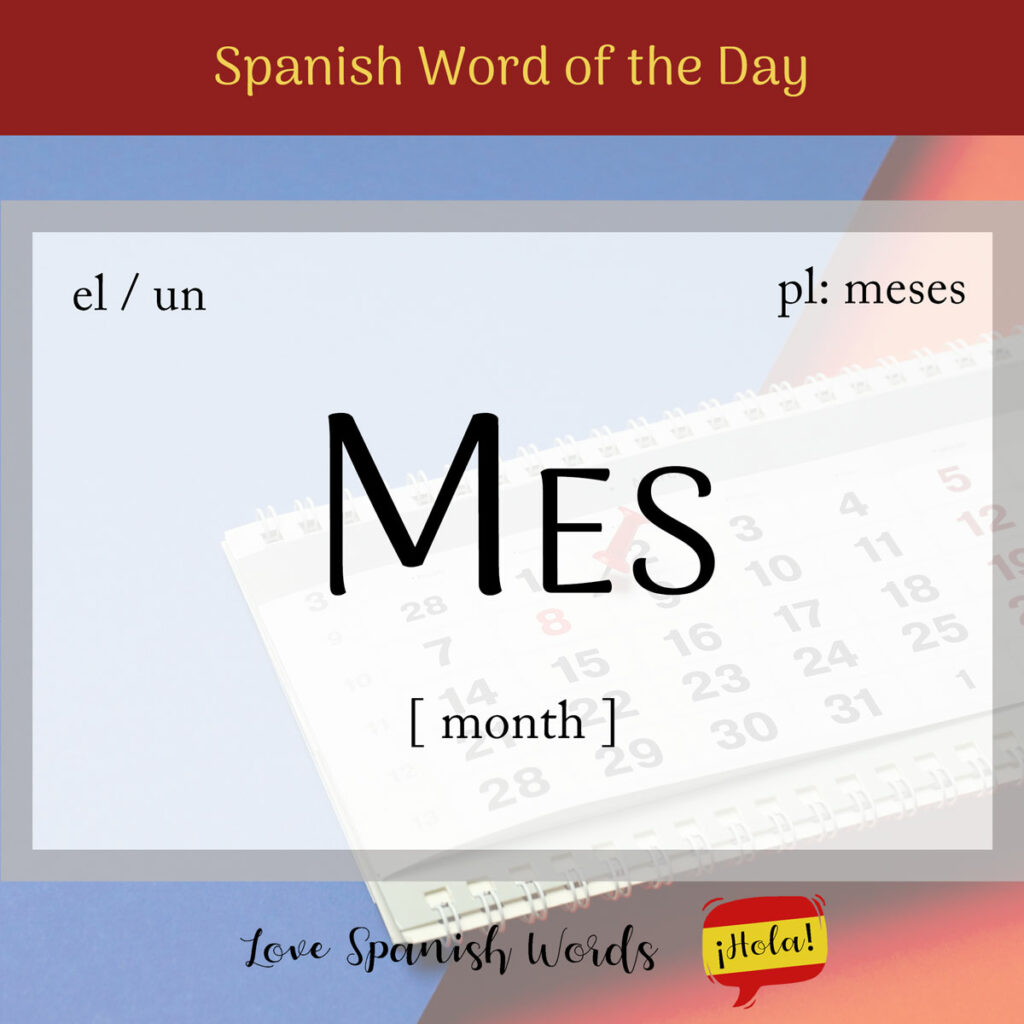Throughout history, humans have crafted numerous methods to measure time, ranging from the smallest units like seconds and minutes to the broader spans of years, decades, and centuries. Nestled in the middle is the unassuming month, referred to as mes in Spanish, serving as the essential unit for dividing our calendar year.
Latin American Pronunciation
European Spanish Pronunciation

Mes is a masculine noun in Spanish whose plural form is meses. You can see the definite and indefinite articles it takes below:
- el mes = the month
- los meses = the months
- un mes = a month
- unos meses = (some) months
Unless they appear at the very beginning of the sentence, the months of the year are not capitalised in Spanish, nor are the days of the week.
enero (January)
febrero (February)
marzo (March)
abril (April)
mayo (May)
junio (June)
julio (July)
agosto (August)
septiembre (September)
octubre (October)
noviembre (November)
diciembre (December)
Hay doce meses en un año.
There are twelve months in one year.

The word mes appears in several commonly used time expressions in Spanish. Here are a few of the most common ones you’ll come across during your time in Spain or Latin America.
- el mes próximo / el mes que viene = next month
- el mes pasado = last month
- este mes = this month
- una vez al mes = once a month
- mes tras mes = month by month
- por meses = for months
- por mes / al mes = per / a month
- a mitad de mes = halfway through the month
- dentro de un mes = in a month’s time
- a principios / a finales de mes = at the beginning / the end of the month
- a fín de mes = by the end of the month
¿Cuánto pagas al mes?
How much do you pay a month?
As in English, mes can also be used to refer to a young child’s age, or to the number of months a woman has been pregnant.
Tiene un bebé de diez meses y está embarazada de dos meses.
She has a ten month old baby and is two months pregnant.

Some additional translations for mes include month’s pay, month’s rent or monthly payment.
You can also use mes as an informal term to refer to a woman’s period (menstruación). For example, to have one’s period can be translated as estar con el mes.
Lingopie (affiliate link) is the Netflix of language learning application that uses real TV shows and movies to help you learn a new language. You can choose a show to watch based on your fluency level, and use the interactive subtitles to get instant translations to help you learn quickly. Try it today and skyrocket your Spanish to new heights!

